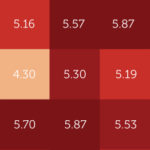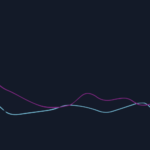March 2, 2018, by Victor Cha and Marie DuMond—
Reports of ubiquitous celebrations of nuclear weapons accomplishments stand in stark contrast with a new micro-survey commissioned by Beyond Parallel of North Korean citizens. Conducted throughout the summer and fall of 2017 with a cross-section of North Korean citizens, the vast majority of North Korean respondents did not have a positive attitude toward their country’s nuclear weapons program.
February 8, 2018, by Victor Cha and Marie DuMond—
A study commissioned by Beyond Parallel of North Koreans currently living inside the country found that 34 of 36 of respondents, or 94.4%, felt that unification is necessary. The majority of respondents, 44.1%, cited the shared ethnicity between North and South Korean’s as the main reason unification should occur.
December 4, 2017, by Marie DuMond—
South Korea and the United States generally share similar estimations of China’s and Japan’s blind spots in a unification scenario. Both believe that Beijing has the most prominent blind spot on domestic stabilization and refugees, and that Japan shares similar concerns, suggesting that all four powers could prioritize law and order in a unification scenario.
November 22, 2017, by Marie DuMond—
On November 22, predictive signals by Predata/CSIS Beyond Parallel indicate there is an elevated likelihood of a North Korean WMD activity in the next 14 to 30 day windows. The likelihood of WMD activity in the coming weeks is tempered by the fact that, historically, North Korea has not conducted many tests in the November and December timeframe.
November 13, 2017, by Marie DuMond—
Beyond Parallel’s first-ever survey of expert assessments on unification-related issues indicate South Korea and the United States share the common view that domestic stabilization and unification costs constitute the most critical unification blind spots with a high degree of concern but low levels of knowledge for both countries.
October 18, 2017, by Marie DuMond—
Domestic stabilization is the most critical issue with unification for South Korean officials and experts, registering the highest composite score (i.e., high level of concern and low level of knowledge). This means civil-military relations, law and order, and stability in the North represent the issues for which Koreans see great consequences for national interests, but for which they have little prior knowledge or understanding. Hence, it is the greatest potential “blind spot” of unification. Costs related to unification rank a close second for South Koreans, followed by refugees, nuclear weapons, and human rights.
September 22, 2017, by Marie DuMond—
Predata-Beyond Parallel signals indicate there is a significantly elevated chance of North Korea conducting a missile test in the next 30-days and an elevated likelihood of North Korea conducting a missile test in the next 14-days... [footer] Elevated chance of a North Korean missile test in the next 14 days.…
September 7, 2017, by Marie DuMond—
On September 7, predictive signals by Predata/CSIS Beyond Parallel indicate there is a significantly elevated chance of a North Korean missile test in the next 14 days. The underlying signal has been breaching its highest levels each day since August 31, reaching its highest level in 102 days on September 5 and exceeding its 30-day trailing average by 2.5 standard deviations. The signal continued to show significant overnight increases through September 6.
July 24, 2017, by Marie DuMond—
A View Inside North Korea: 35 of 36 North Koreans currently living inside North Korea said at least 75% of their household income came from the markets and not from their official government sanctioned jobs. As featured on The Washington Post... As featured in The Washington Post "Markets helping North Koreans become more independent of the…
May 12, 2017, by Marie DuMond—
A Predata-CSIS Beyond Parallel May 12 prediction indicates there is a 69% likelihood of North Korean weapons of mass destruction (WMD) activity taking place in the next 14 days. In the next 30 days, there is an 85% chance for North Korean WMD activity. Beyond Parallel defines WMD activity as nuclear tests and missile launches.










